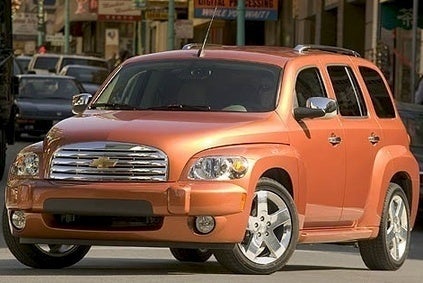
General Motors is expanding the recall of some 2003-2007 model year vehicles to correct a condition with the ignition switch that may allow the key to unintentionally move or switch to the ‘accessory’ or ‘off’ position, turning off the engine and most of the electrical components on the vehicle, including airbags.
In addition to 2005-2007 Chevrolet Cobalts and Pontiac G5 and Pontiac Pursuit sold in Canada only, GM is separately recalling 2003-2007 Saturn Ions, 2006-2007 Chevrolet HHRs, and 2006-2007 Pontiac Solstice and Saturn Sky models. The affected US number, including vehicles recalled on 13 February, now totals 1,367,146.

Discover B2B Marketing That Performs
Combine business intelligence and editorial excellence to reach engaged professionals across 36 leading media platforms.
Another 235,855 are in Canada, 15,073 are in Mexico and 2,591 were exported outside North America, according to GM.
The expanded US tally raises the number of reported incidents involving frontal crashes, in which the recall condition may have caused or contributed to the non-deployment of the frontal airbags, to 31 involving 13 front-seat fatalities.
All of the crashes occurred off-road and at high speeds, where the probability of serious or fatal injuries was high regardless of airbag deployment, a GM spokesman told Reuters. Failure to wear seat belts and alcohol use also were factors in some cases, the spokesman said.
“As part of the recall, GM is taking steps to address customer concerns and working with its suppliers to increase parts production and accelerate availability,” the automaker said.
“Ensuring our customers’ safety is our first order of business,” said GM North America president Alan Batey. “We are deeply sorry and we are working to address this issue as quickly as we can.”
As well as writing to owners, GM, through customer care centres and social media, is using customer records and communications channels to notify affected customers of the recall and additional actions the company is willing to take to relieve their concerns and minimise inconvenience.
GM is recalling these vehicles because the ignition switch torque performance may not meet GM specifications. If the torque performance is not to specification, and the key ring is carrying added weight or the vehicle goes off road or experiences some other jarring event, the ignition switch may inadvertently be moved out of the ‘run’ position.
The timing of the key movement out of the ‘run’ position, relative to the activation of the sensing algorithm of the crash event, may result in the airbags not deploying, increasing the potential for occupant injury in certain kinds of crashes.
Dealers will replace the ignition switch to prevent the unintentional or inadvertent key movement. Until this correction is performed, customers should use only the ignition key with nothing else on the key ring, GM said.
On Monday, the company submitted to the National Highway Traffic Safety Administration a detailed chronology associated with its initial recall of the ignition switch torque performance condition in Chevrolet Cobalts and Pontiac G5s and Pursuits. The chronology outlines events that happened during the time that elapsed between receiving the first field reports and issuing a recall.
“The chronology shows that the process employed to examine this phenomenon was not as robust as it should have been,” said Batey. “Today’s GM is committed to doing business differently and better. We will take an unflinching look at what happened and apply lessons learned here to improve going forward.”
Arthur Henry, senior analyst for Kelley Blue Book, said: “Typically recalls do not move the needle in terms of brand consideration and perception, but this expansion of the recalls and the fervour surrounding them is reminiscent of Toyota from 2009. If GM can take any learning from Toyota, it would be to expect short-term repercussion in the form of lost consumer confidence, and declines in perceived quality and safety. Toyota has shown that a brand can recover from an incident like this and what may help GM is the fact that the majority of the models recalled are discontinued. This may dissolve any negative projection toward its new products.”






